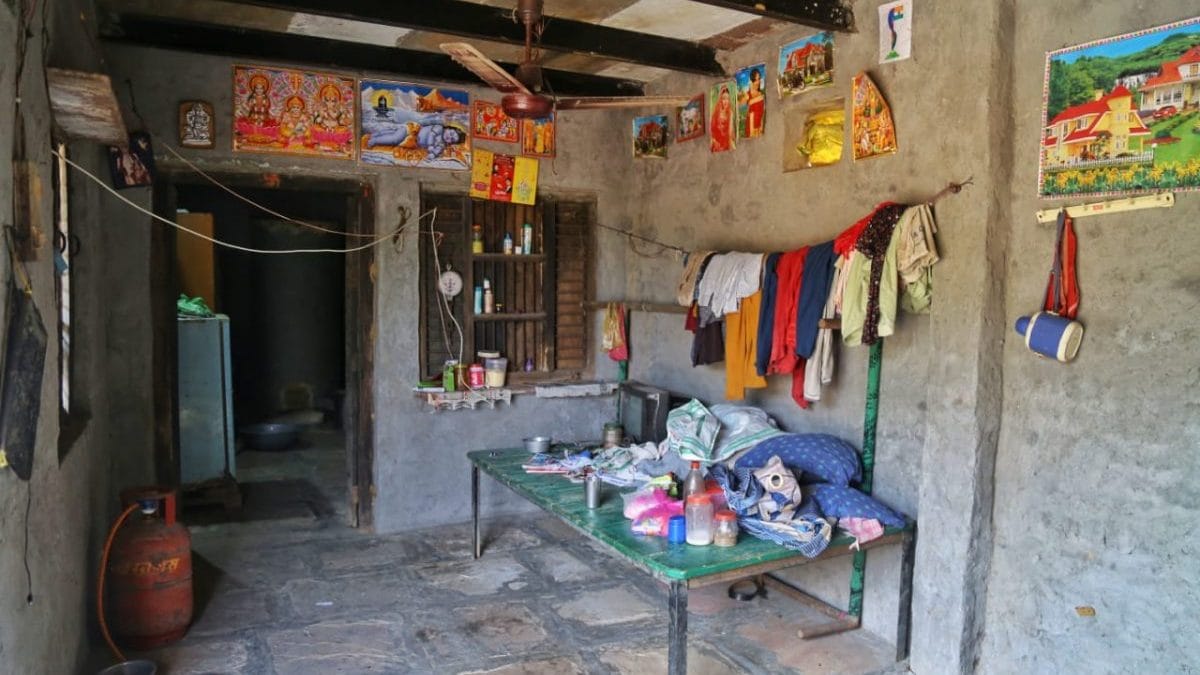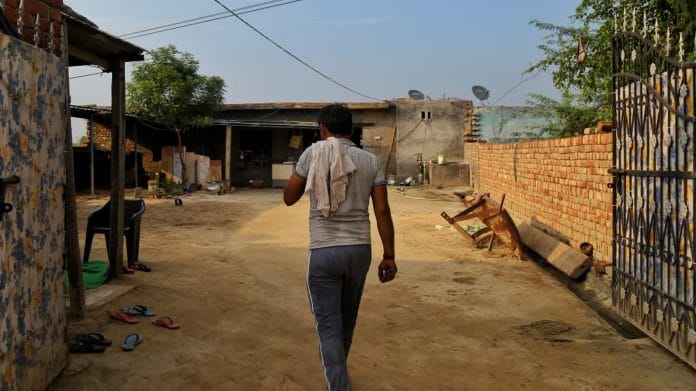New Delhi: At 5.30 am Wednesday, Lakhi Ram, in his early 70s, called out to his 34-year-old son Naresh, a farm labourer.
When he didn’t receive a response, Ram made his way to the bedroom of the family’s modest house at Aurangabad village in Haryana’s Palwal district.
In the bare room with grey walls plastered with myriad photos, including some of Hindu gods, Ram found Naresh hanging from the ceiling fan. Naresh’ wife, two children and niece were lying dead on the single piece of furniture in the room — a charpoy.
The chilling details are a part of the FIR registered by the Palwal police in the case, which it suspects is a murder-suicide committed due to months of economic uncertainty and financial instiability.
ThePrint has accessed a copy of the FIR.
“It appears that Naresh fed sleeping pills to his family and then hanged himself. It appears that the poison was given orally,” a police officer said.
According to the police, economic uncertainty, financial distress due to the impact of the Covid-19 pandemic and intra-family tensions may have led Naresh to allegedly murder his wife, two children and niece before committing suicide.
Naresh’s cousin, Bhagat, a local political worker, told ThePrint that Naresh’ son, Sanjay, was about nine or ten years old, while his daughter, Varsha, was eight.
Naresh’s wife, Aarti, was about 30 years old, and his niece Ravita roughly the same age as Sanjay.
Bhagat said Naresh was out of the village over the last few months and had just returned to Aurangabad Tuesday afternoon. He even spent some time with the neighbours later that evening.
The Indian Express had reported that Naresh had been based out of Jhansi, operating his own dhaba and living with his in-laws for the past six months.

‘He was struggling to make ends meet’
According to a police source, the couple often fought at home. Naresh, the police source said, had borrowed a lot of money from different people and was unable to return it.
“In the initial investigation we have found that he was under debt. Moreover, he had no consistent income. He used to work as a farmer on other people’s land and earn a meagre wage,” a police officer privy to the investigation said.
“In the last two years, since the farming sector suffered and landowners were not making much profit, they stopped employing many daily wagers. Naresh, who was making some money from there, was then left searching for a job every day. This often led to fights at home,” the officer said, adding there were no injuries on the bodies of his family members found dead.
“We will send the viscera samples of the family for further examination. It is still unclear which sleeping pills were given,” the officer said.
‘He repaid his loan a few days ago’
Naresh’s relatives are, however, skeptical of accepting the police’s version, and are even reluctant to admit it to be a case of murder until the post-mortem results are out.
Bhagat also said that Naresh had no history of addiction, substance abuse or depression, and expressed disagreement with the police’s version of the events, as well as with media coverage of the case.
“We can’t call this a murder yet… We cannot say for certain yet what happened (to Aarti and the children). Naresh’s case can be called a suicide but only the postmortem will reveal what happened to the others,” he added.
Bhagat also said that Naresh was in no financial difficulty. “Eight days ago, (Naresh) cleared a loan worth Rs 1,55,000 on his tractor,” he said. “Maybe his neighbours would have assisted him regarding any financial scarcity but they would not have cleared his loan.
“This situation was completely unexpected, and took place sometime on Tuesday after 10 or 11 pm while the neighbours and everyone else nearby were asleep,” Bhagat added.
(With inputs from Ananya Bhardwaj)
Also read: Haryana’s tech-based healthcare approach could be a blueprint for our response to Covid-19






